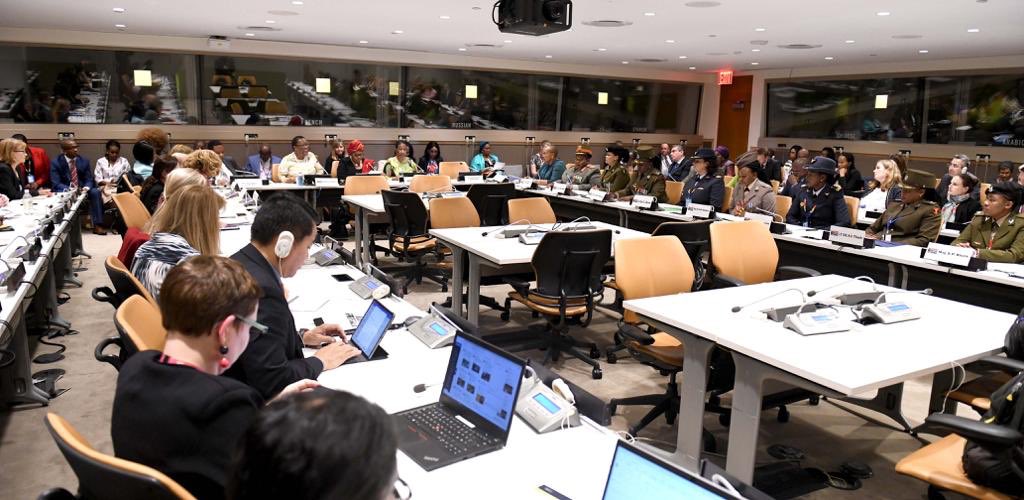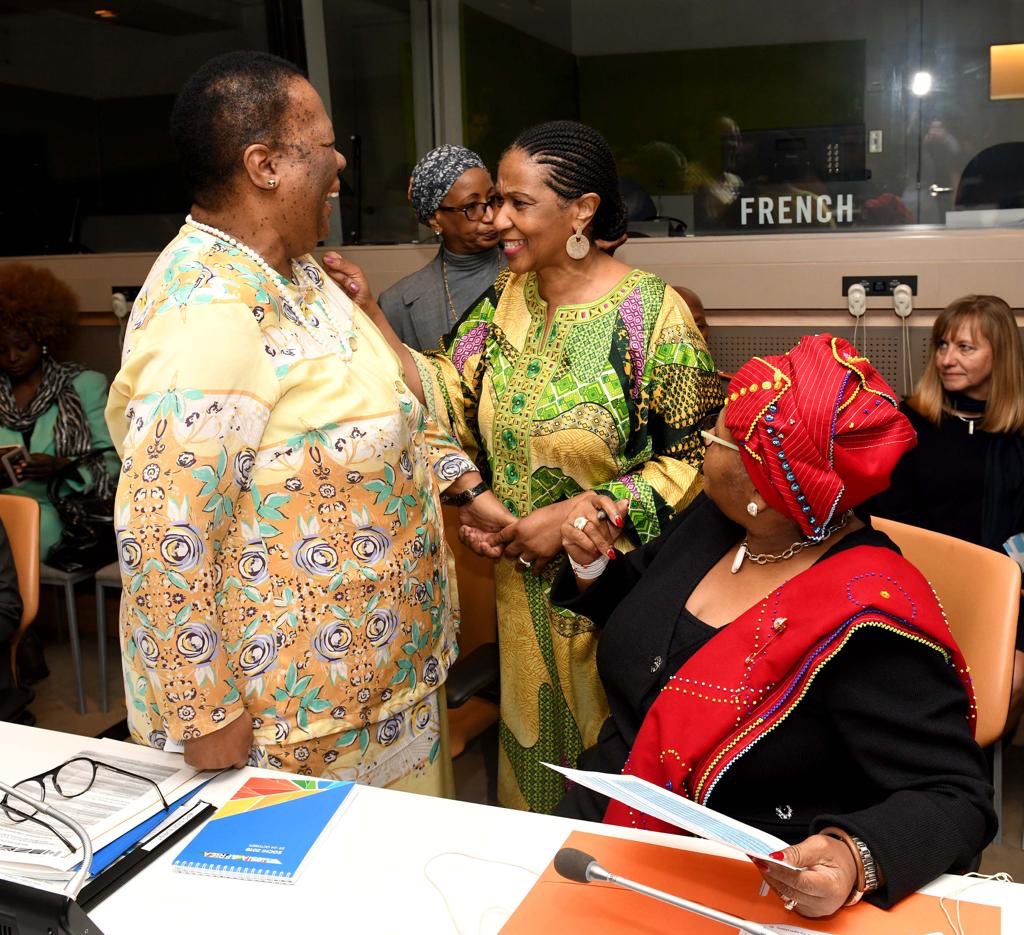Riyaz Patel
UN Women’s Executive Director Phumzile Mlambo-Ngcuka has noted the “stark contrast” between offers of support and reality, presenting the UN Secretary-General’s latest Women Peace and Security (WPS) report in the Security Council.
“We still live in a world that tolerates and excuses women’s continued exclusion from peace and political process and institutions,” Mlambo-Ngcuka stated, pointing out that after conflict, men dominate large-scale reconstruction while economic recovery for women is overwhelmingly limited to small-scale activities like micro-enterprises.”
South Africa’s former Deputy President continued: “Feminist organization’s repeated calls for disarmament, arms control and shifting military spending to social investment go unanswered.”
Adding that several recent peace talks had largely excluded or sidelined women, she said this was unacceptable.
“We can do better than this.”
“We need your political will to demand women’s direct and meaningful participation in peace talks,” Mlambo-Ngcuka emphasized, pointing out that fewer than eight per cent of agreements reached, contained gender-related provisions – down from 39 per cent in 2015.
She cited a recent analysis on Colombia’s 2016 peace accord that showed around half of the 130 gender-related provisions in the agreement have not been initiated.
Before the meeting adjourned, the Council, under the leadership of South Africa, adopted resolution 2493, which, among other things, requested further feedback on the progress and setbacks in the WPS agenda, as well as recommendations to address emerging challenges.
It called for the appointment of gender and/or women protection advisers to facilitate women’s “full and effective participation and protection” in election preparation processes, disarmament, judicial reforms and wider post-conflict reconstruction processes.
The resolution also requested that Secretary-General António Guterres develop “context-specific approaches” for women’s “full, equal and meaningful participation” in all UN-supported peace talks to ensure their inclusive involvement.
DIRCO Minister Naledi Pandor, Minister of Defence & Military Veterans, Nosiviwe Mapisa-Nqakula and Mlambo-Ngcuka, led the discussions on WPS ahead of the open UNSC debate.

South Africa’s efforts drew international praise.
The WPS agenda must continue to be “one of the top priorities of the United Nations,” Guterres said on how best to accelerate change.

“Change is coming at a pace that is too slow for the women and girls whose lives depend on it, and for the effectiveness of our efforts to maintain international peace and security,” the UN chief said.
Guterres told the Security Council that nearly two decades since resolution 1325 acknowledged the disproportionate and unique impact of armed conflict on women and girls, “women still face exclusion from peace and political processes.”
